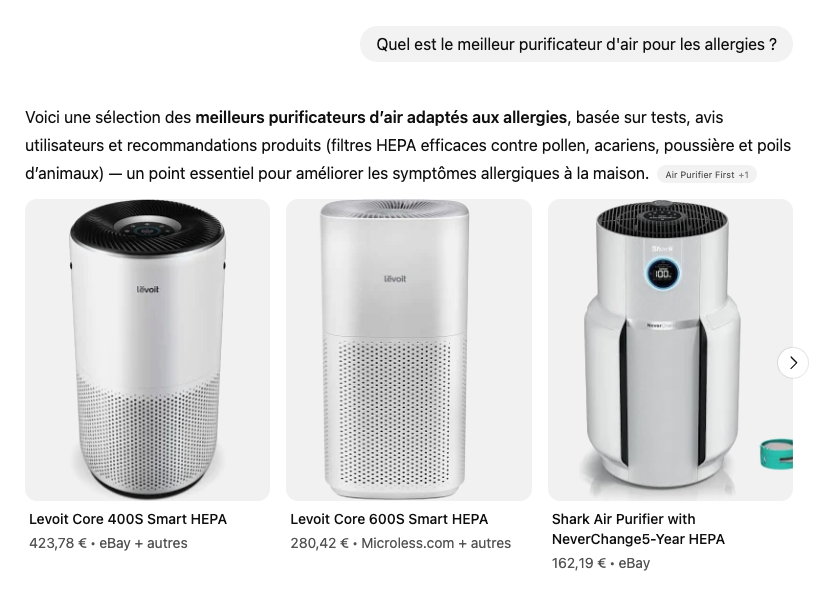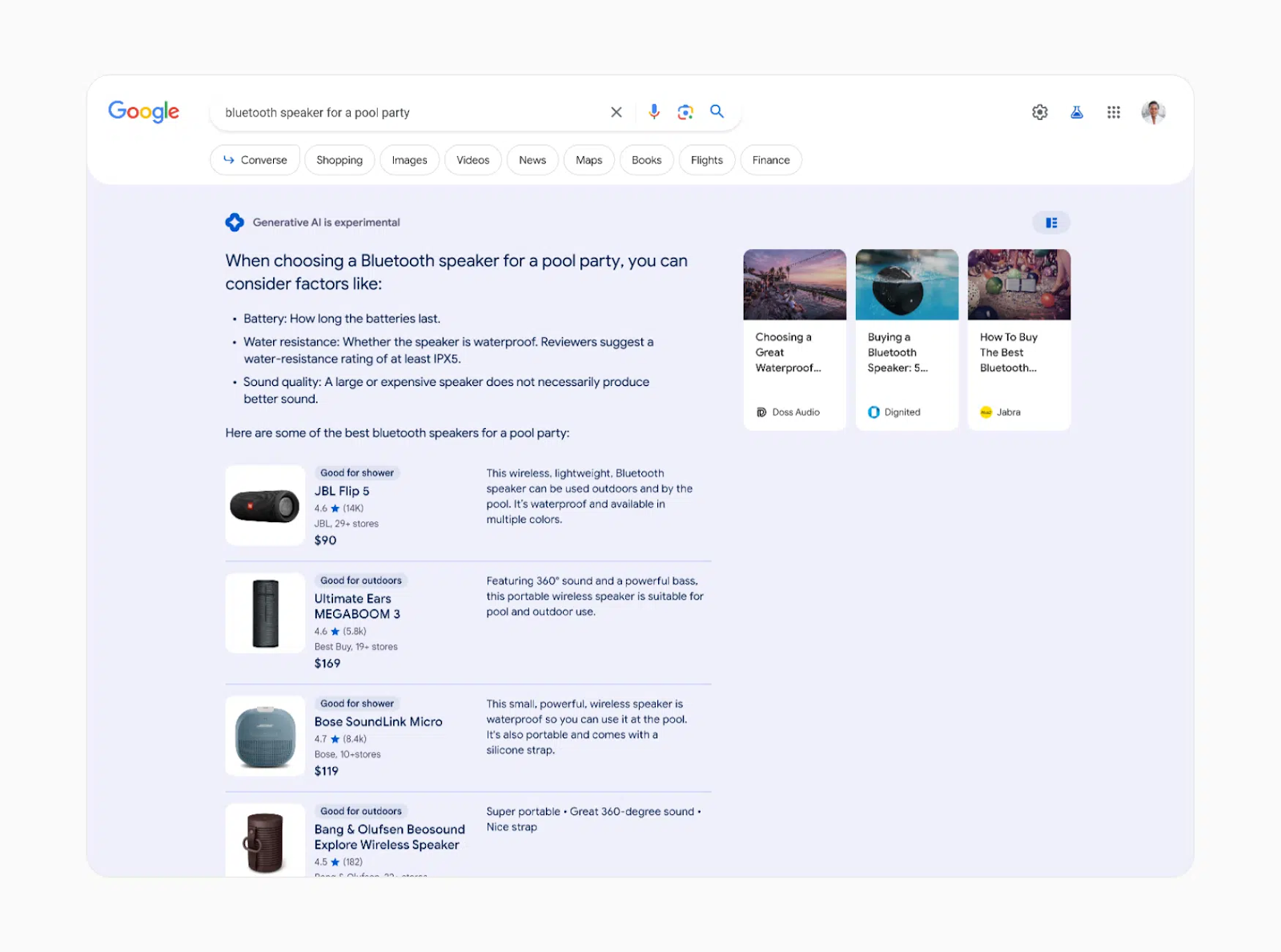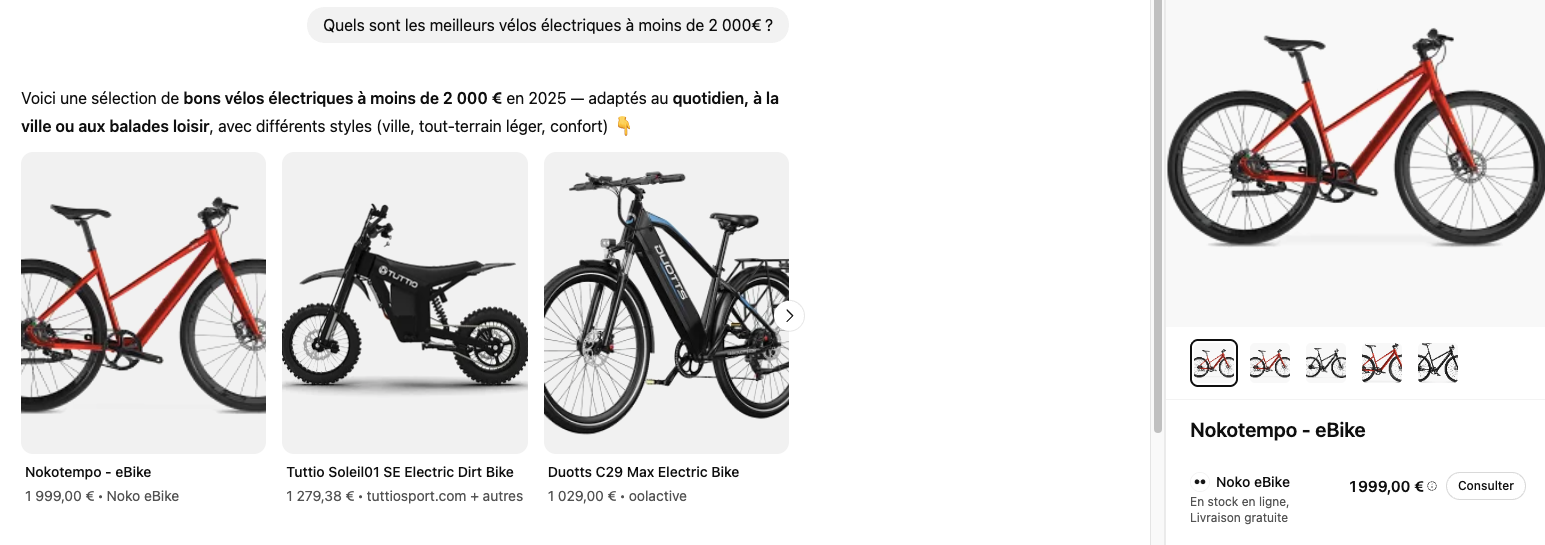Le lien contextuel : encore utile à l’ère du GEO ?
Le lien contextuel : encore utile à l’ère du GEO ?
Maxence Debroux
February 5, 2026
.

"6 consommateurs sur 10 ont déjà remplacé les moteurs de recherche traditionnels par une IA générative. » — Capgemini, février 2025
Au lieu de parcourir les résultats de recherche, ils posent des questions directes, obtiennent des réponses sélectionnées et contournent souvent complètement les moteurs de recherche traditionnels.
Des réponses plus rapides. Des achats plus rapides.
Selon Gartner, ce changement entraînera une baisse de 25 % du volume de recherche traditionnel d'ici 2026 — et une chute marquée du trafic organique.
Et la confiance suit l'usage : 76 % des consommateurs déclarent faire confiance aux recommandations générées par l'IA, selon Salesforce.
Ce changement marque la montée en puissance du Generative Engineoptimization (GEO) — une nouvelle approche de la visibilité qui vise à être cité, pas seulement à être classé.
Pour les marques e-commerce, c'est bien plus qu'une tendance. C'est un champ de bataille compétitif.
Ce que vous allez apprendre dans cet article :
Lorsque les utilisateurs demandent « Quel est le meilleur purificateur d'air pour les allergies ? » — ils ne veulent pas 10 liens.
Ils veulent une réponse claire, fiable et assumée.

Et c'est précisément ce que livrent des assistants IA tels que Chat GPT, Gemini, ou Perplexity.
Incomplet ou biaisé ? Peut-être.
Mais les acheteurs gagnent du temps — et ils accordent peut-être plus d'importance à cela qu'à l'exhaustivité.
Ce basculement est massif :
L'IA simplifie les décisions → et réduit votre fenêtre d'influence.
Pour les marques e-commerce, cela signifie :

Vous avez toujours besoin du SEO — mais ce n'est plus suffisant.
Pour réussir en 2026, les équipes e-commerce doivent combiner SEO + GEO.
SEO traditionnel → GEO (Generative Engine Optimization)
Faire ranker vos pages → Optimisez votre contenu pour être cité
Optimiser pour les mots-clés → Optimisation pour le contexte et la confiance
Se concentrer sur les clics → Se concentrer sur la crédibilité
Mesurer le trafic → Mesurer les citations dans les réponses de l'IA
Avec le GEO, il ne s'agit pas d'être trouvé.
Il s'agit d'être nommé.
Demandez à ChatGPT : « Quels sont les meilleurs vélos électriques à moins de 2 000€ ? »
Il ne donnera pas de liste : il donne 2 à 3 noms de produits et vous n'êtes qu'à un clic de la boutique en ligne pour terminer votre commande.
Si vous n’en faites pas partie, vous êtes invisible.

Pour réussir, vous devez optimiser pour la façon dont l'IA pense :
« Être l'expert cité est le nouvel équivalent du classement #1. » — Céline Naveau, PDG de Semactic
La recherche par IA n'est pas une menace. C’est un raccourci — et une opportunité énorme.
Les marques e-commerce qui s'adaptent dès maintenant vont :
Il est temps d'optimiser non seulement pour les crawlers de Google — mais aussi pour les LLM qui parlent à vos clients.
Faites en sorte que votre marque soit la seule que les assistants IA jugent fiable… et recommandent.
Vous voulez savoir si votre marque apparaît dans la recherche IA ?
Effectuez un contrôle de visibilité gratuit sur ChatGPT : 👉 https://chatgpt-checkup.semactic.com
L'optimisation générative des moteurs (GEO) est le processus qui permet de rendre votre contenu visible dans les moteurs de recherche alimentés par l'IA tels que ChatGPT, Gemini ou Perplexity. Au lieu de se concentrer uniquement sur les classements, GEO veille à ce que votre marque soit citée dans les réponses générées par l'IA. Pour le commerce électronique, cela signifie qu'il doit apparaître directement dans les recommandations de produits, les comparaisons et les guides d'achat, exactement là où les décisions d'achat sont prises.
Le référencement optimise le contenu pour le classer dans la liste de liens de Google. GEO optimise le contenu à citer dans les réponses générées par l'IA. Alors que le référencement se concentre sur les mots clés, les métadonnées et les backlinks, GEO met l'accent sur le contenu structuré, les signaux d'autorité et les informations dignes d'être citées. Pour les détaillants en ligne, cette évolution implique de préparer du contenu que l'IA peut résumer et auquel il peut faire confiance, et pas seulement indexer.
Les marques de commerce électronique peuvent : Structurer les pages avec des résumés clairs, des questions-réponses et des tableaux comparatifs. Ajoutez un balisage de schéma pour les prix, les avis et la disponibilité. Publiez du contenu fiable avec des sources, des citations d'experts et des données. Encouragez les critiques et les mentions sur les plateformes externes. Vérifiez si leur marque est citée dans les réponses de l'IA et ajustez le contenu en conséquence.
Oui Les assistants IA fournissent des réponses directes et fiables qui raccourcissent le parcours d'achat. Les recherches montrent que les utilisateurs prennent souvent des décisions plus rapidement lorsque les recommandations proviennent de moteurs d'IA. En étant citées comme une source fiable, les marques de commerce électronique instaurent une confiance immédiate et orientent les utilisateurs vers l'achat, réduisant ainsi souvent le temps entre la recherche et la vente par rapport au référencement traditionnel.